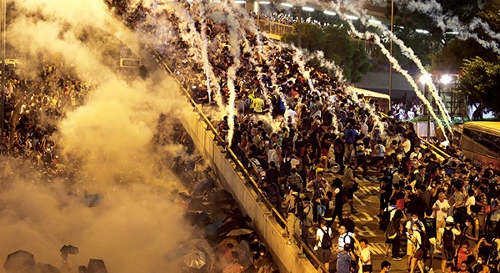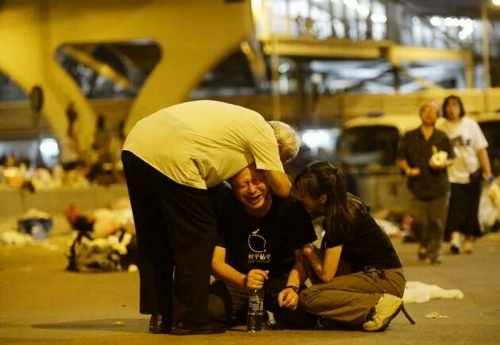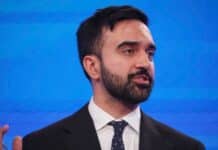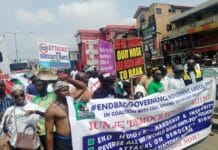Lessons must be learned in order to rebuild an unstoppable democracy movement
Socialist Action reporters
Today it is one year since a vicious and unprecedented police tear gas attack triggered the ‘Umbrella Revolution’. This was the biggest mass movement in Hong Kong since 1989 and involved up to 1.2 million people over a three month period. Ultimately, despite great courage and organisational boldness, the movement could not wrest political concessions from the Chinese dictatorship. This in our opinion was due to insufficient organisation – the need for democratic grassroots structures to run the struggle. It also shows the need for a class struggle orientation, based on the working class rather than lawyers, media personalities and middle-class politicians, and linking democratic demands to issues like wages, jobs and housing. Breaking the power of the capitalist tycoons is the only way to solve the economic and political problems.
But a crucial lesson from these historic events is the need to replace the failed policies and strategy of the pan-democratic leaders and their allies such as the ‘Occupy Central’ (OC) campaign. The OC leaders are undeservedly now being presented in the mass media as the “leaders” of the movement one year ago, and giving their opinions which – if this is possible – are even more confused and defeatist than they were last year.

Here is our answer to this:
- OC did everything possible to prevent the mass occupations in Hong Kong arguing that “radicals will take over”. Their alternative was a short symbolic occupation that never happened.
- After the NPC August 31 ruling Benny Tai of OC said protest “could not change the political reality” (Bloomberg News interview). This was three weeks before the Umbrella movement kicked-off!
- OC and Tai disassociated themselves from the student strikes that triggered the Umbrella movement.
- On September 28, after police repression and arrests of students, Tai finally appeared and announced OC “starts now” – most youth booed or walked out in protest at his attempt to jump into the leadership of a struggle he’d kept away from.
- On the evening of September 28, after reports of armoured cars approaching, OC’s Chan Kin-man told protesters in Admiralty to retreat. “It is a matter of life and death,” he said. They occupied instead!
- On October 21 after the TV debate between student leaders and the government, Tai wanted to hold a phone referendum to cancel the occupations. He now says, one year later, that he should have insisted on the referendum and it was a “mistake” to back down over this. The phone referendum was defeated by mass pressure and Benny Tai and Co went on the Admiralty stage and bowed in apology for ever proposing it!
- Days later OC leaders announced they were retiring from the occupation on grounds of “public safety”.

‘Occupy Central’ was a 2-year discussion that led to nothing: Admiralty, Mongkok, and CWB were all occupied, but not Central. This is because the OC leaders delayed so long they were overtaken by a real movement. Subsequently all their efforts were aimed at trying to demobilise and end the struggle.
The attempt by the media to ‘rehabilitate’ these figures as the leaders of last year’s movement amounts to historical revisionism. No matter how the media exaggerates OC leaders’ role, it is clear that they were marginalised in the movement and had little authority. But there is a reason for this. For the media and the pro-government camp it is valuable for such figures to be promoted as “leaders” because as long as the democracy struggle is under their influence, based on a strategy of seeking limited compromise with the Beijing regime, it poses no threat to the existing undemocratic system.
Socialist argue for a completely different approach. While the OC leaders and other pan-democratic figures are spreading pessimism and suggesting that mass struggle is pointless, we say the movement must be rebuilt – on democratic and working class foundations. Mass struggle is the only way to succeed, because there can be no democracy until the current dictatorial system in China is overthrown. The latest statements from Beijing officials such as Chen Zouer and Zhang Xiaoming make this very clear. In fact, the Chinese regime wants to further shrink Hong Kong’s limited democratic space.
One year later we can see even more clearly that the road of ‘reform’ is closed. What’s needed is a revolutionary mass struggle to spread Hong Kong’s demands for democracy into mainland China, and to link this to socialist policies and democratic control over the economy as the only way to provide real jobs, pensions, affordable housing, and strong public services.




